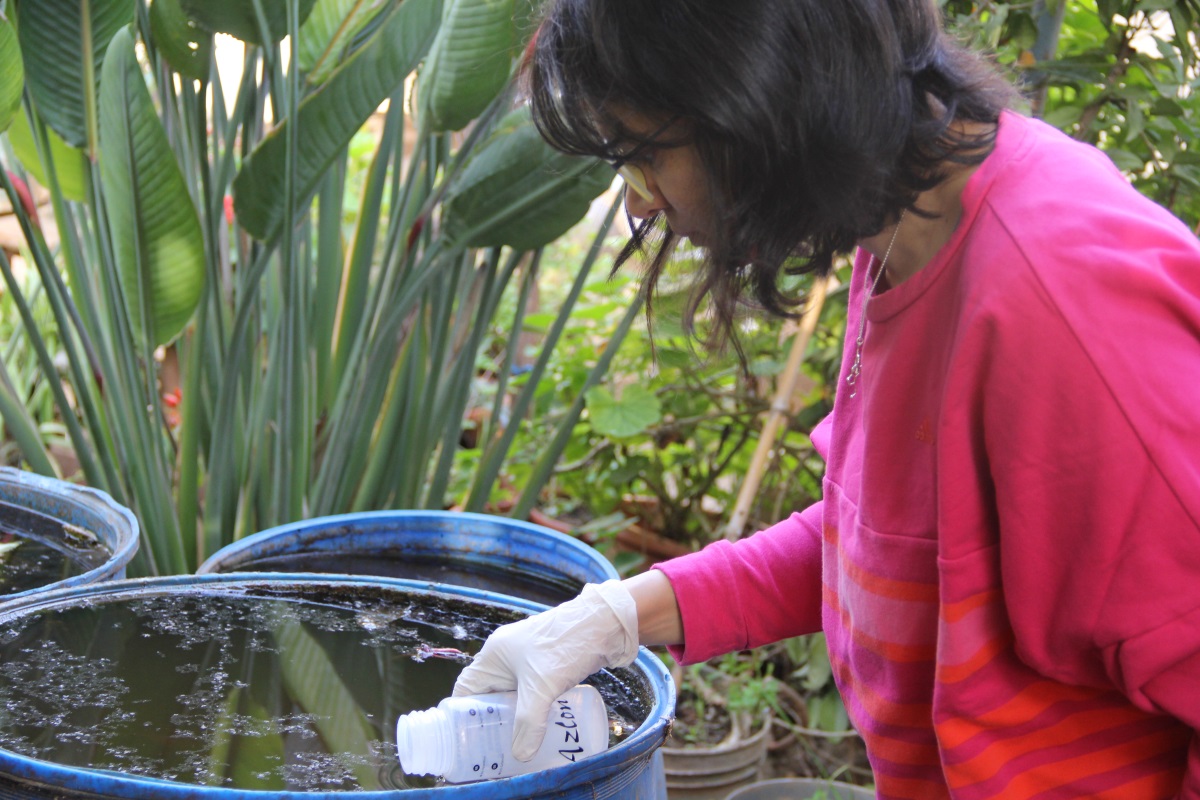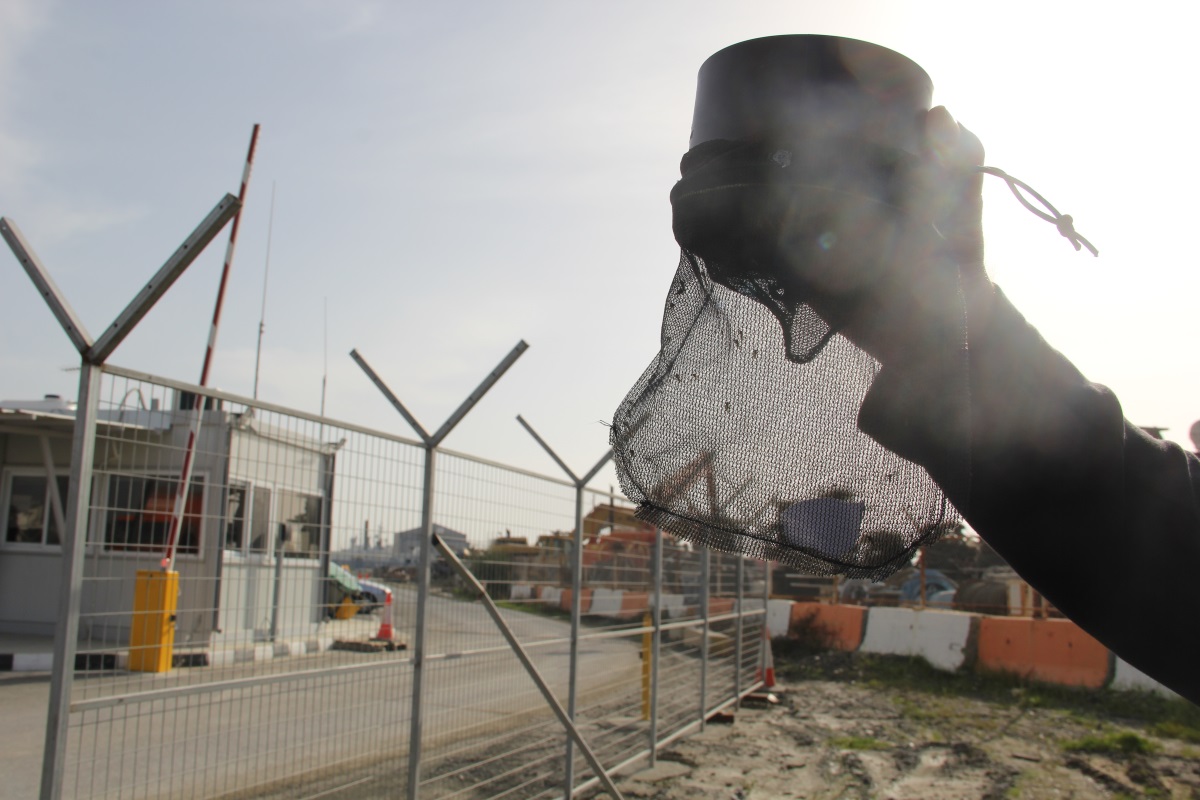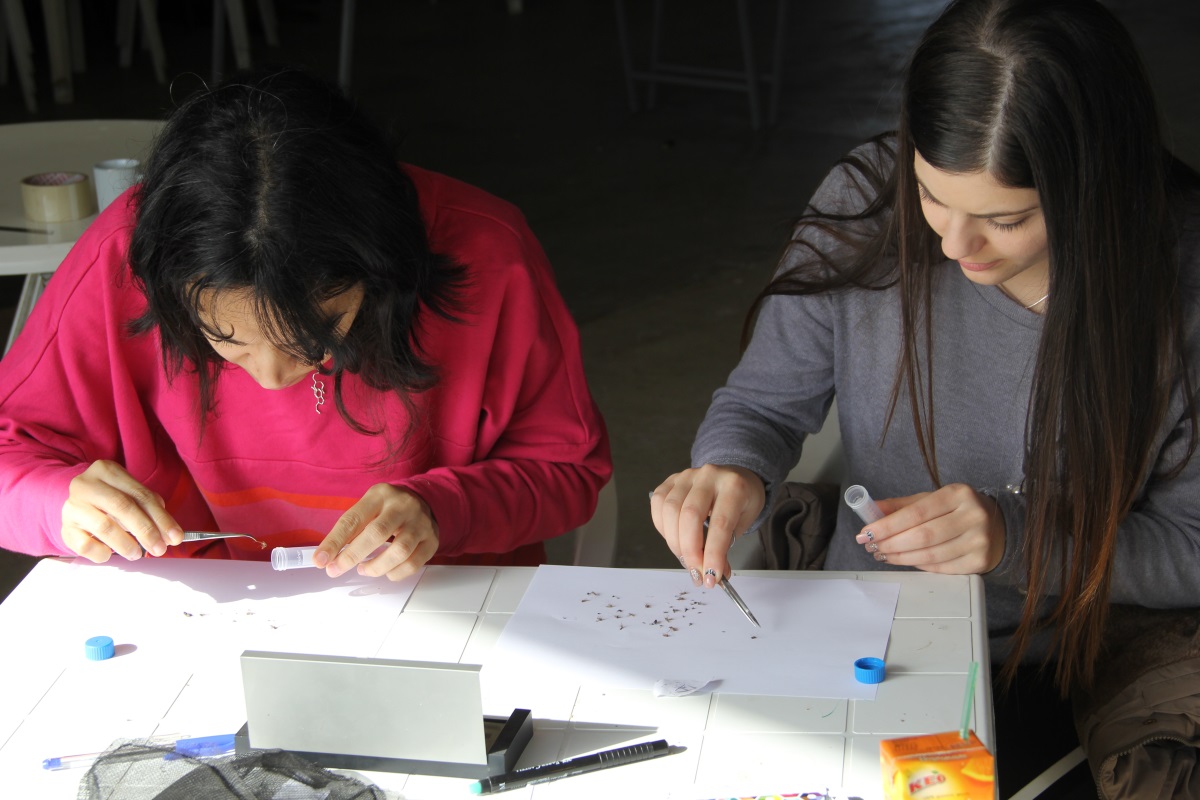On the occasion of the World Day for Women in Science, the Cyprus University of Technology, with a view to encouraging women and young girls towards engaging in science, presents women scientists being employed at the University and devoted to their research activities.
Marlen I Vasquez holds a degree in Biology from the National and Kapodistrian University of Athens, a Master's degree in "Environment and Development" from the National (Metsovian) Technical University of Athens and a PhD in Environmental Engineering from the University of Cyprus. She has worked in a counseling firm in the Dominican Republic (2002-2003), in a Non Governmental Organization in Cyprus (2003), at the Public Health Services of the Ministry of Health (2004-2009), the GAIA Laboratory of Environmental Engineering, the Department of Environmental Policies and Engineering (2006-2012) and at the NIREAS Water Research Center of the University of Cyprus (2012-2015). Since September 2012, she has been working at the Department of Environmental Science and Technology at the Cyprus University of Technology as a Special Educational Staff for the subject of Environmental Microbiology and Biotechnology.
Dr. Marlen I Vasquez is an Environmental Toxicologist and leads the Ecotoxicology Research Team at the Department of Environmental Science and Technology of the Cyprus University of Technology. The Research Group is active in fields of environmental monitoring using advanced biological and chemical tests and consists of a postdoctoral researcher, a scientific associate, two postgraduate students and one undergraduate student. Dr. Vasquez has participated in a total of 15 research programmes ( ~ 4.5 million euros) and 4 scientific networking projects. She has successfully supervised 6 postgraduate and 8 undergraduate assignments. In total, she has 24 publications (scientific articles and chapters in books). She has participated in 21 world conferences and 9 European/national conferences. At the same time, she is involved in organizing activities to communicate science to the general public ( Famelab, Mediterranean Science Festival, Researcher's Night etc)
The Ecotoxicology Research Team aims to develop and implement advanced aquatic health monitoring techniques in an integrated, modern and as short as possible manner. Hence, the effort is made to avoid oversimplifying the questions being studied, but to take into account their incomparable complexity from the first stage of experiments design. In particular, the Team has three pillars of research activities (1) the study of the dynamics of insect populations that can act as diseases carriers such as malaria, zica, West Nile virus, and (2) the development of innovative molecular methods of biodiversity assessment and identification of foreign species (3) the study of composite microbial communities in relation to the health of aquatic ecosystems using meta-engineering techniques. Within the scope of its activities, the Team applies traditional methods of acute and chronic toxicity assessment using multiple biological tests at cellular and organism level. In addition, it can investigate other negative effects such as estrogenicity, mutagenicity and genotoxicity. Finally, to better understand the effects on a population, the Team uses molecular indexes and advanced techniques based on next generation sequencing.
"The universality of science and scientific reasoning, in other words scientific literacy, can guide us on how to overcome the most serious social problems we face today."
For more information, you may visit the www.oikotoxicology.org or follow the Facebook Research Team (@oikotoxicologia )
Διάλεξη με τίτλο «Κυκλική Οικονομία: προκλήσεις και προοπτικές»
On the occasion of the World Day for Women in Science, the Cyprus University of Technology, with a view to encouraging women and young girls towards engaging in science, presents women scientists being employed at the University and devoted to their research activities.
Marlen I Vasquez holds a degree in Biology from the National and Kapodistrian University of Athens, a Master's degree in "Environment and Development" from the National (Metsovian) Technical University of Athens and a PhD in Environmental Engineering from the University of Cyprus. She has worked in a counseling firm in the Dominican Republic (2002-2003), in a Non Governmental Organization in Cyprus (2003), at the Public Health Services of the Ministry of Health (2004-2009), the GAIA Laboratory of Environmental Engineering, the Department of Environmental Policies and Engineering (2006-2012) and at the NIREAS Water Research Center of the University of Cyprus (2012-2015). Since September 2012, she has been working at the Department of Environmental Science and Technology at the Cyprus University of Technology as a Special Educational Staff for the subject of Environmental Microbiology and Biotechnology.
Dr. Marlen I Vasquez is an Environmental Toxicologist and leads the Ecotoxicology Research Team at the Department of Environmental Science and Technology of the Cyprus University of Technology. The Research Group is active in fields of environmental monitoring using advanced biological and chemical tests and consists of a postdoctoral researcher, a scientific associate, two postgraduate students and one undergraduate student. Dr. Vasquez has participated in a total of 15 research programmes ( ~ 4.5 million euros) and 4 scientific networking projects. She has successfully supervised 6 postgraduate and 8 undergraduate assignments. In total, she has 24 publications (scientific articles and chapters in books). She has participated in 21 world conferences and 9 European/national conferences. At the same time, she is involved in organizing activities to communicate science to the general public ( Famelab, Mediterranean Science Festival, Researcher's Night etc)
The Ecotoxicology Research Team aims to develop and implement advanced aquatic health monitoring techniques in an integrated, modern and as short as possible manner. Hence, the effort is made to avoid oversimplifying the questions being studied, but to take into account their incomparable complexity from the first stage of experiments design. In particular, the Team has three pillars of research activities (1) the study of the dynamics of insect populations that can act as diseases carriers such as malaria, zica, West Nile virus, and (2) the development of innovative molecular methods of biodiversity assessment and identification of foreign species (3) the study of composite microbial communities in relation to the health of aquatic ecosystems using meta-engineering techniques. Within the scope of its activities, the Team applies traditional methods of acute and chronic toxicity assessment using multiple biological tests at cellular and organism level. In addition, it can investigate other negative effects such as estrogenicity, mutagenicity and genotoxicity. Finally, to better understand the effects on a population, the Team uses molecular indexes and advanced techniques based on next generation sequencing.
"The universality of science and scientific reasoning, in other words scientific literacy, can guide us on how to overcome the most serious social problems we face today."
For more information, you may visit the www.oikotoxicology.org or follow the Facebook Research Team (@oikotoxicologia )




